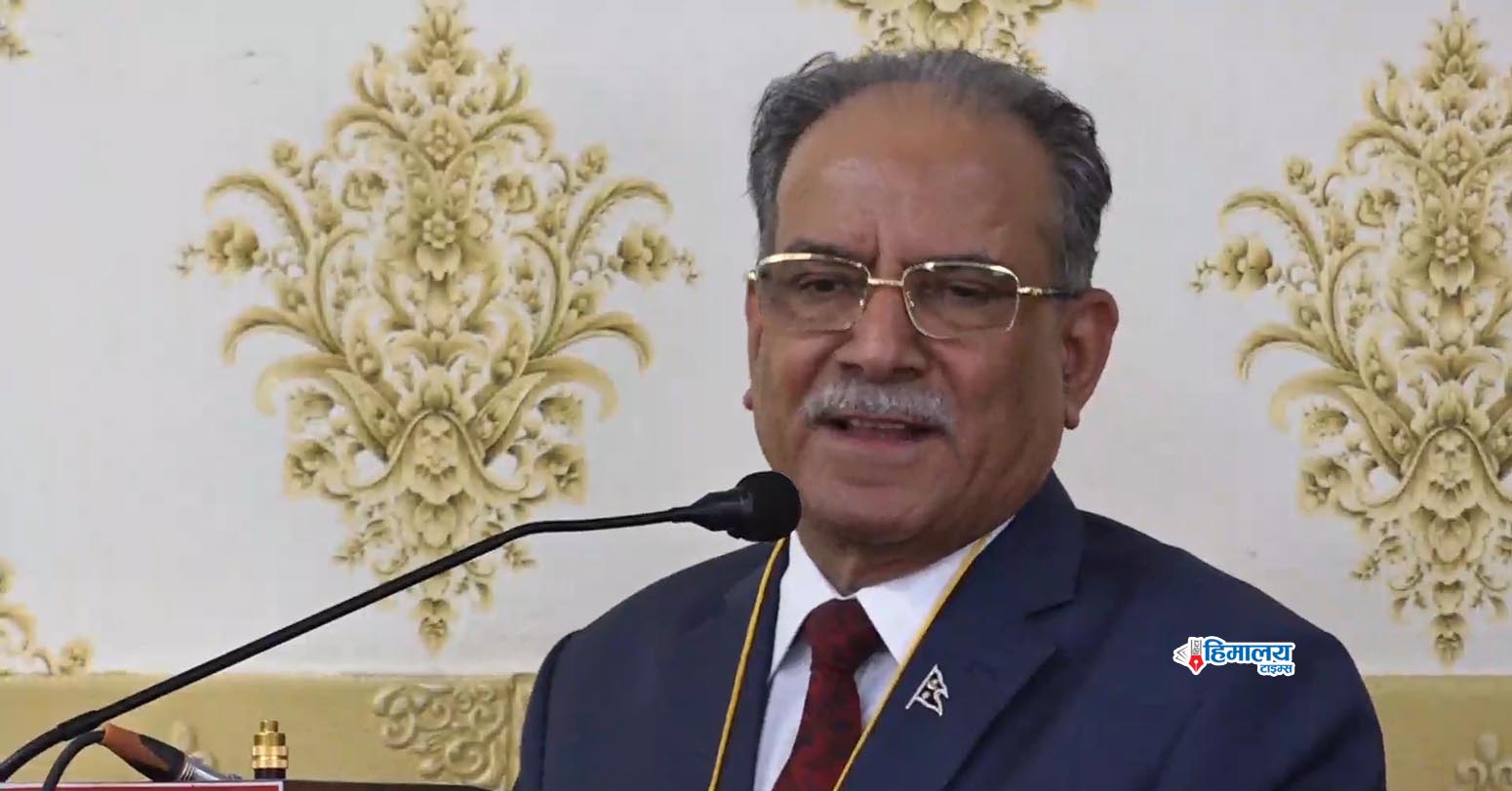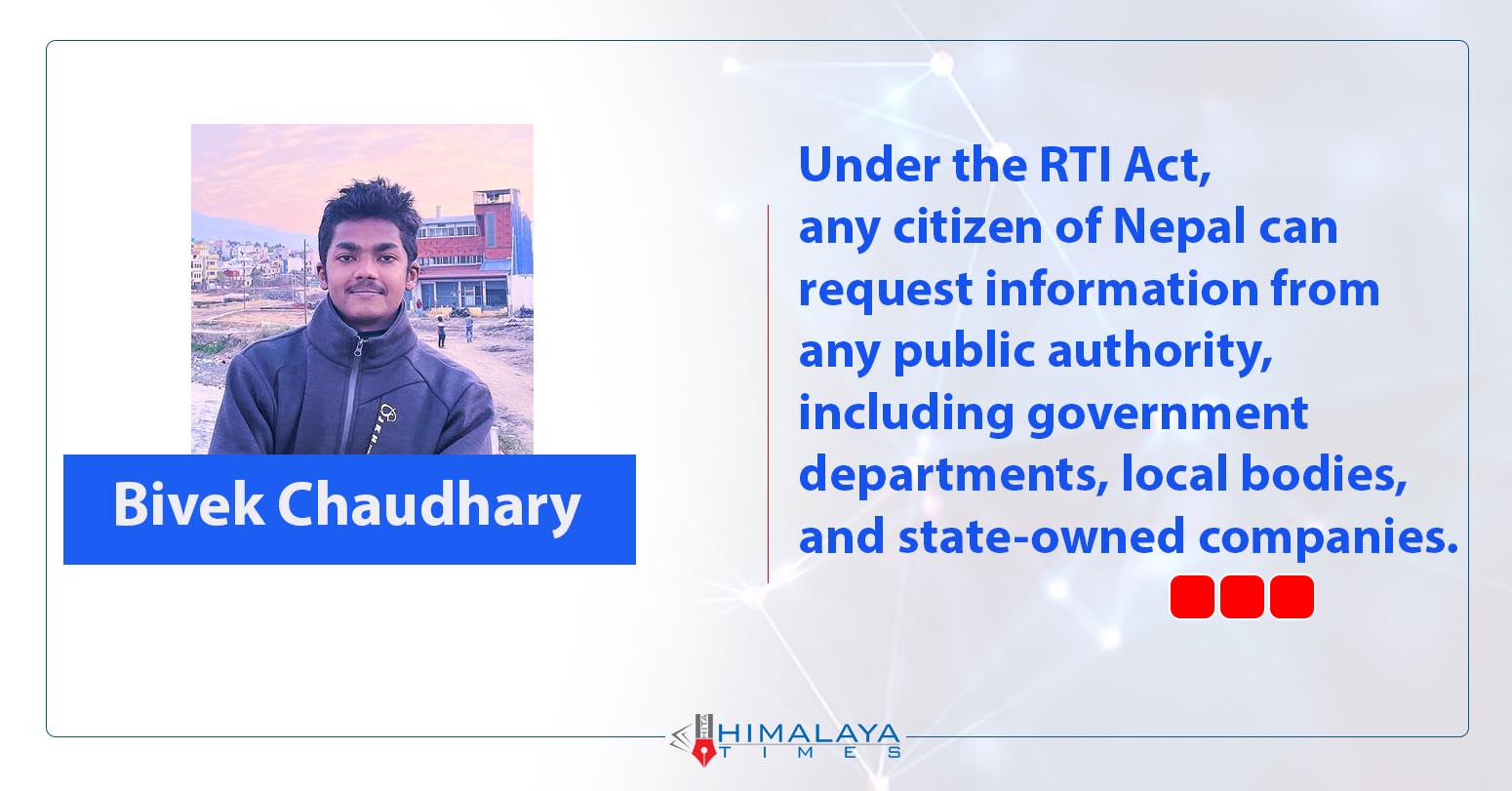- Bivek Chaudhary
The Right to information (RTI) is a cornerstone of a democratic society, providing citizens with the power to hold public authorities accountable and promote transparency. With the RTI Act enacted in 2007, the Nepal Government made a significant commitment to promote transparency and accountability, providing citizens with a powerful tool to access information held by public authorities. The RTI Act covers all public authorities, including government offices, local bodies, and public enterprises. The Act empowers citizen to seek information from public authorities, thereby enhancing their participation in the democratic process. The right to know, the right to live." The RTI Act has been instrumental in promoting transparency, accountability, and good governance in Nepal. It has helped expose corruption, promote public participation, and enhance service delivery. Any Nepali citizen can file an RTI request for information related to public authorities. The request must be made in writing, either in Nepali or English. Majorly in present practice in Nepali RTI request is made as according to the format prescribed by national information commission and the Act.
Under the RTI Act, any citizen of Nepal can request information from any public authority, including government departments, local bodies, and state-owned companies.
Under the RTI Act, any citizen of Nepal can request information from any public authority, including government departments, local bodies, and state-owned companies. The information sought can pertain to any matter of public interest, including policies, decision, and action of the government. The RTI Act provides a framework for individual to request information from public authorities, including government departments, local councils, and state-owned companies. The National Information Commission (NIC) is an independent body responsible for overseeing and enforcing the RTI Act in Nepal. Likewise the act also establishes a system for the public to appeal decision made by public authorities in regards to RTI requests. This system has helped to promote transparency, accountability and has been instrumental in the fight against corruption.
One of the key benefits of the RTI Act, is that it empowers citizens to participate in the decision-making process of their government. With Access to information citizen can better understand how the taxes are being spent and how decisions are being made. They can use this information to hold public authorities accountable and ensure that they are acting in the best interest of the public. The RTI Act has been instrumental in exposing corruption and promoting transparency in many areas of public life. For example, RTI request have been used to expose the mismanagement of funds in public projects, leading to the cancellation of several corrupt deals. The act has also helped to shed light on the workings of public authorities and has helped to create a more open and transparent culture of governance. However, despite its many benefits, the RTI Act has its own challenges.
There is a need for ongoing efforts to educate public institutions and citizens about the importance of the right to information and the ways in which it can be used to improve governance.
One of the key challenges is to ensure that public authorities are responsive to RTI requests in a timely and effective manner. In many cases, public authorities are slow to respond to RTI requests to provide incomplete information. This can be due to lack of resources or a lack of understanding of the RTI Act. Another challenge is the need for greater public awareness about the RTI Act and the rights and responsibilities of citizens under the act. Many people are unaware of the provision of the RTI Act and do not know how to make RTI requests. This can lead to a lack of engagement with the act and a failure to take advantage of the benefits it provides. To address this challenge, it is crucial that the RTI Act is effectively implemented and public authorities are sensitized to the importance of providing information to citizens in a timely and transparent manner. Additionally, the RTI Act should be amended to address the limitations and ensure its continued effectiveness in promoting transparency and accountability in governance.
The public institution is required to respond within 15 days of receiving the request, providing the requested information or explaining why it cannot be provided. If the requested information is deemed sensitive or confidential, the public institution may choose to withhold it, but only if it is in the public interest to do so. There are still challenges to the implementation of the Right to Information Act in Nepal. Many public institutions are not aware of the act or do not understand the importance of providing citizens with access to information. Additionally, some public institutions may be resistant to providing information that could be embarrassing or damaging to their reputation. As a result, there is a need for ongoing efforts to educate public institutions and citizens about the importance of the right to information and the ways in which it can be used to improve governance.
The Right to information is a powerful tool for promoting transparency, accountability, and citizen empowerment. However, it is important to continue to work to address the challenge faced by the act and to ensure that it is functioning effectively. By promoting greater public awareness of the RTI Act and working to improve the responsiveness of public authorities, we can ensure that this important tool continues to deliver benefit for citizen and support the development of a more open and accountable society. It is important that the government and public authorities continue to uphold the spirit of the Act and ensure its effective implementation.



















Wonderful Article